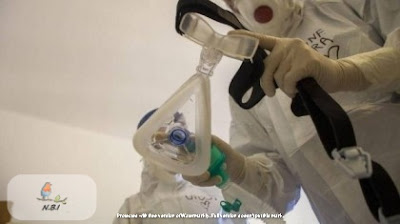Anti-ageing new treatment: The secret is in oxygen
A recent scientific study revealed the possibility of benefiting from pure pressurized oxygen in the treatment of signs of aging and the diseases associated with it.
According to the study, which was conducted by scientists at the Israeli "Tel Aviv" University, with age, the protective coverings at the ends of "chromosomes" called "telomeres", can decrease the time it takes for cells and DNA to divide properly during cell division and protect genetic data. This causes DNA damage, cells stop reproducing, and senescent cells build up in the body.
Scientists have found that giving pure compressed oxygen to the elderly increases the length of their "telomeres" by 20 percent, according to the British newspaper "The Telegraph".
According to the authors of the study, the increase in the length of "telomeres" achieved in the experiment, makes it at the present time the same as it was 25 years ago.
The treatment also reduced the rate of senescent cells by 37 percent, increasing life expectancy by more than a third.
Commenting on the findings of the study, Professor Shai Efrati, a neurologist at the Tel Aviv University School of Medicine, said: "The marked improvement in the length of telomeres will help us modify the aging pathway at the cellular biological level."
The experiment included people aged 64 and over, who did not undergo any modification in terms of their lifestyle or diet, nor were they given specific medications, but each one of them was placed in a separate high-pressure chamber equipped with 100 percent pure oxygen for 90 minutes. Five (5) days a week for three (3) months.
The pressurized chamber dissolves more oxygen in the tissues, helping to regenerate cells, as well as halting what the experimenters described as "cognitive decline".
Scientists believe that their study, whose results were published in the scientific journal "Aging", will harness oxygen therapy in the future to renew brain functions in the elderly, and possibly treat diseases such as Alzheimer's.

No comments:
Post a Comment